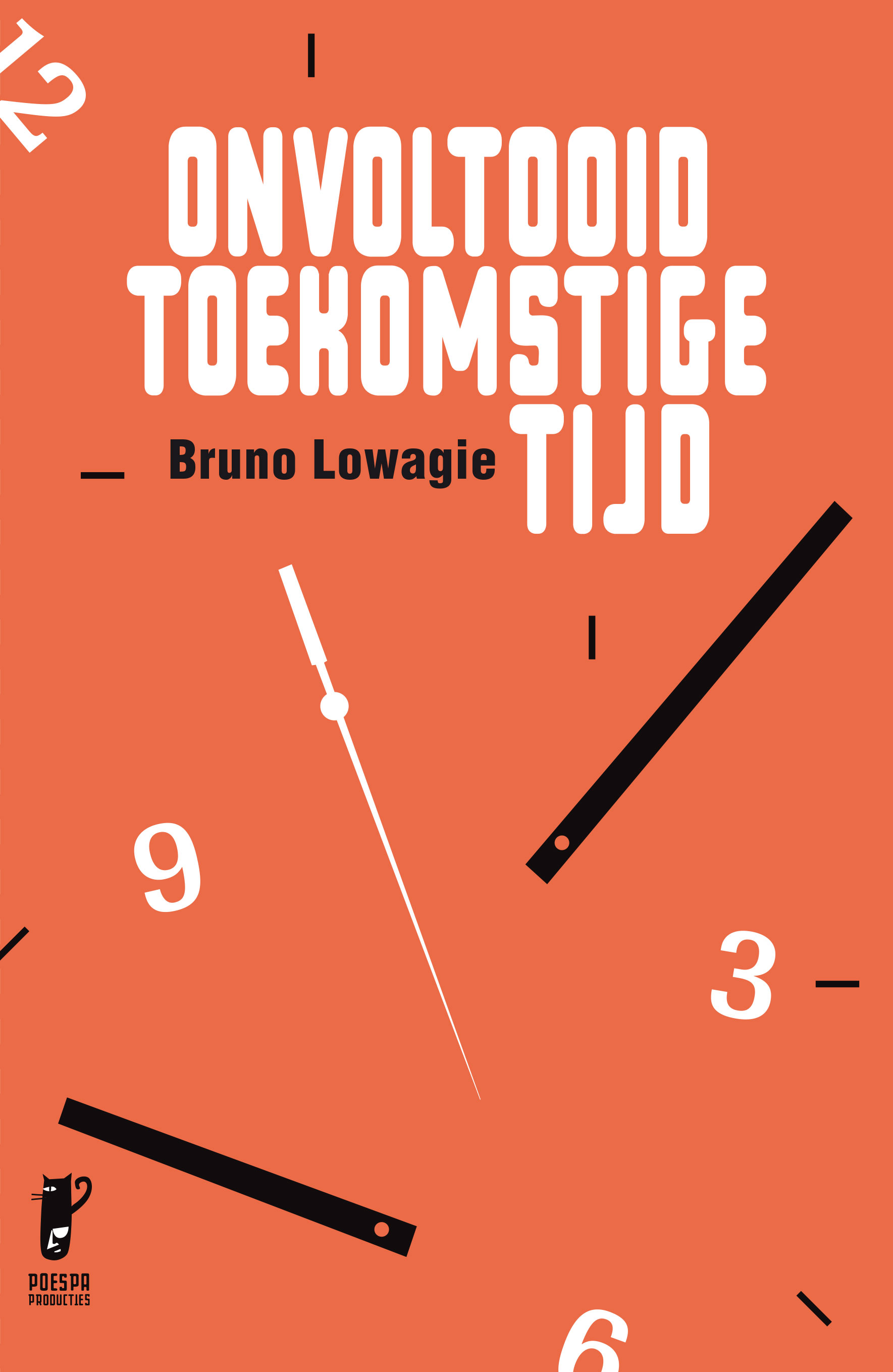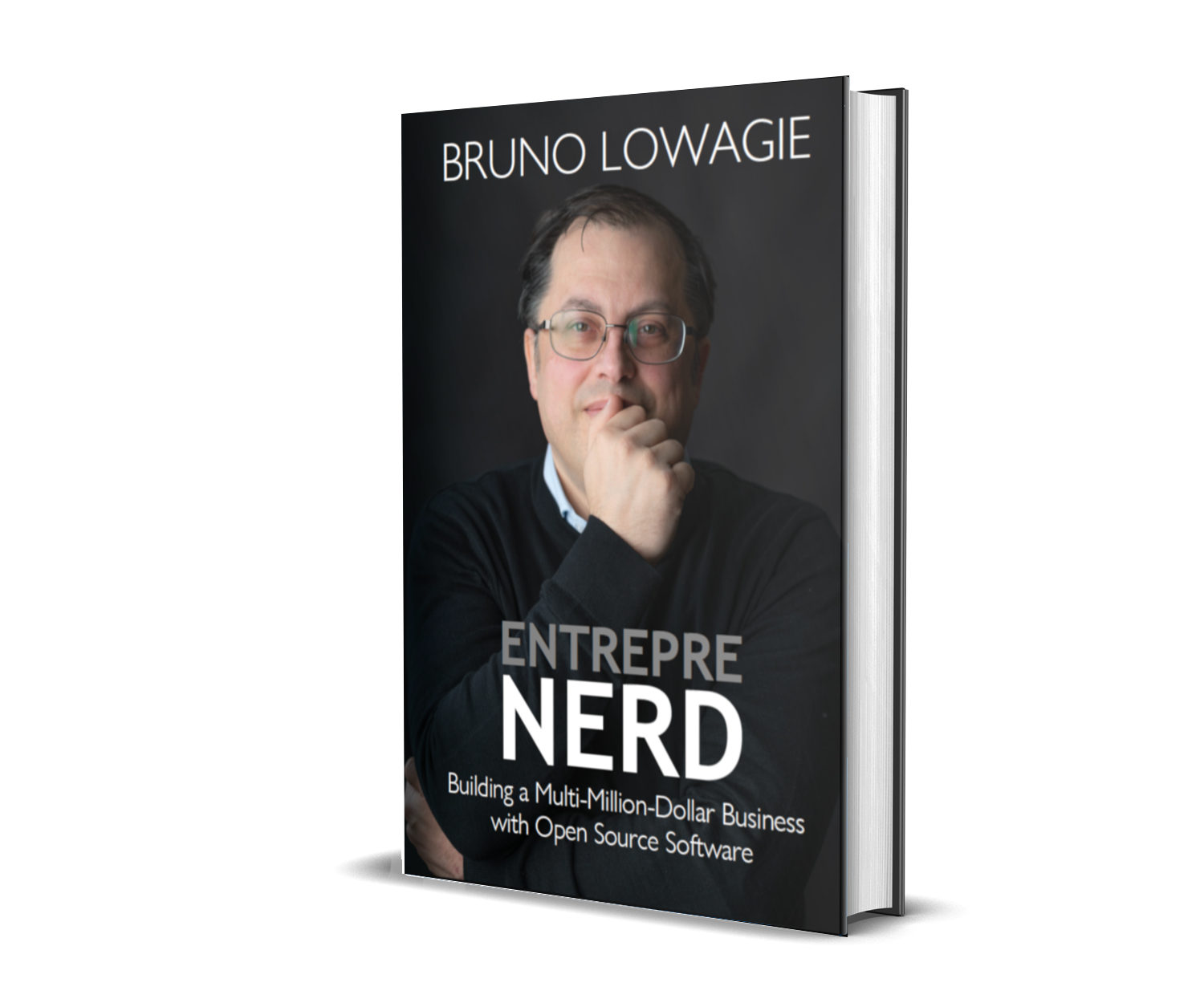2022-02-13
On Becoming a God in Open Source
When I released my book Entreprenerd nine months ago, I contacted several open source leaders. I offered them a free copy of the eBook version in the hope that they would read it, love it, and promote it. Unfortunately, almost none of them responded. Those who did, told me they didn't have the bandwidth to read a 400-page book about their core business.
Truth to be told, that's not exactly how they phrased it; I added four words to illustrate how absurd it is for someone to say:
Open source is my bread and butter, but I'm not interested in a story about someone who allows me to be a fly on the wall in the internal kitchen of a successful open source vendor.
I won't name any names, but I really didn't understand why people who call themselves [ evangelists | open source advocates | digital leaders ] and who secured seats in the boards of open source foundations and companies gave me the cold shoulder.
Until last week...
Last week, I binge-watched the Netflix series On Becoming a God in Central Florida (1 season, 10 40-to-50-minute episodes). The acting was quite good, but I lost interest toward the end of the series. I liked some of the characters introduced in the first handful of episodes, but they made some really disappointing choices in the second half of the series. A feature film of about two hours probably would have been better than ten episodes of almost an hour. Then again, I say that about almost every Netflix series. Watching On Becoming a God in Central Florida was fun, but I understand why some of the reviewers on IMDB recommend pretending that episode 5 is the final episode, and then stop watching there.
I mention this series because it made me realize something about the open source world.
The protagonist of On Becoming a God... is Krystal Stubbs, played by Kirsten Dunst. Her husband, Travis, is tired of being poor, tired of his job, or rather: his J.O.B. (an acronym of Just Over Broke, Jerks On Board, Jester Of Boss...). He's introduced to Founders American Merchandise aka FAM by a self-proclaimed successful business man, Cody Bonar. Cody convinces Travis that he can—and even should—be a millionaire. Travis joins FAM and his success depends on the success of his "downline". That is: the people he can convince to buy and sell FAM products, such as toilet paper, soap, etc. Travis is pressured into working day and night by his "upline" a chain of people that starts with Cody and goes up from there. There's a system involving Founder Points (FP) with levels that are named after Founding Fathers: Franklin, Jefferson, Washington. Within each level, there are Bronze, Silver and Gold sub-levels. Each promotion to a next level corresponds with a higher commission fee.
In other words: it's a text book example of a pyramid scheme. While Cody pretends to be rich, we learn that he's essentially a loser pretending to be a winner. He really believes that FAM will make him wealthy, and so do most people in his downline. He organizes rallies that are almost religious events, with his crowd chanting mantras and saying "Amen!" to everything Cody says. However, the more people get entangled in FAM, the more money they lose at the expense of the wealthy founder of FAM, Obie Garbeau II.
Take away the desire to become a millionaire, and make it about Becoming a God in Open Source, and you can write an almost identical story. There's an "upline" of open source heroes who keep convincing their "downline" that writing open source code will make them feel good. Writing open source code will make you feel respected, admired, famous. If you're really good, you may even promote to a higher level, and become an open source hero yourself. You might get invitations to talk at open source conferences and maybe even land a job at a Big Tech company, e.g. in a devrel function, allowing you to spread the message that Big Tech loves open source software too.
Developers attending open source events are usually very gullible to this narrative. That's not surprising as most of those developers aren't open source developers. They use open source software, but they hardly ever contribute to open source software, let alone run an open source project. The situation is very different if you're actually responsible for supporting and maintaining your own open source project that is used by dozens of Fortune 500 companies. If you're married, your wife might look at you the same way Krystal Stubbs looks at her husband in the first couple of episodes of On Becoming a God... She will see that you work day and night to please your upline. She might appreciate that you get nothing but respect from your upline, but I'm sure she won't like all your whining about your downline: users who complain that they've "tried your software and it doesn't works." The more time and money you spend on your project, the more she'll tell you that the praise you get from your upline doesn't pay the bills.
I published my first open source project in 1998, but it was only moderately successful. I released my first successful open source project in 2000. For eight years, I spent almost all the free time I had on that project, using time that I could have devoted to my wife and children. I almost gave up on the project in 2008, when my son was diagnosed with cancer. He went through 18 chemotherapy sessions and needed surgery to replace his knee with a prosthesis. Our financial situation became dire that year, and I reached out to the community, asking for help. Unfortunately, the large corporations that were using my software didn't take any pity on me. I had chosen an open source license that allowed them to continue using my library, and that was all that mattered to them. I was expendable.
That was a real eye-opener to me.
My wife and I recovered from the disaster that hit our family in 2008, and we decided that a change was needed. In my book Entreprenerd, I explain how we took things in our own hands and started developing a business for my open source project. It wasn't easy, but we succeeded. We created a multi-million-dollar business that allowed us to hire developers to support and maintain the software. We turned the project into a product with plenty of new features and functionality. Eventually, we sold the company for an eight-digit figure.
If I compare my life with the Netflix series On Becoming a God in Central Florida, I started my career in open source as a "Bronze Franklin" in 1998, and I succeeded to grow into being a "Silver Jefferson" up until 2008: I had the opportunity to write a book for a renowned publisher, I was invited as a speaker at several events. However, I would never have reached the level of "Gold Washington" because that status was reserved for the Googles and Amazons of this world.
When confronted with bad luck, I felt abandoned. I was forced to find a way to succeed outside of the existing system. I made the switch from FOSS (Free & Open Source Software) to COSS (Commercial Open Source Software). In my book Entreprenerd, I explain how I became a millionaire with open source software; my book doesn't explain how to become a millionaire with open source software in general. People who have read it, understand that it was quite a journey.
Open source used to be a movement for developers, by developers. I really enjoyed the early years, even when large corporations claimed that open source was a cancer (Steve Balmer @ Microsoft) or socialism (Shai Agassi @ SAP). Today, I often feel that open source has changed into a movement for companies and governments who want to thrive on free stuff at the expense of developers. The result is that some developers sabotage their own projects (faker.js/colors.js), throw in the towel (PCL4X), or move toward a Source Code Available license such as the Server Side Public License (SSPL) which isn't accepted as an open source license by the Open Source Initiative (OSI). While I certainly understand the decision of OSI not to accept the SSPL as an open source license, we must not remain blind for the reasons why companies such as MongoDB and Elastic moved toward the SSPL.
I explain some of those reasons in great detail in my book. Entreprenerd gets great reviews, but the silence from the "Gold Washingtons" in open source is deafening. That shouldn't surprise me as much as it does. They are still in the system, benefiting from it. Why would they promote a book that shows open source developers a different path? In the meantime, open source is suffering from meltdowns on one side and from projects moving away from open source on the other side. So it goes...
Onvoltooid toekomstige tijd
Entreprenerd
Wintercircus
Blog
- 2026-01-25:
Waarom de Belgische meerwaardebelasting een ramp is voor de Belgische economie - 2026-01-22:
Verkeerd citeren, en hoe hierop te reageren - 2026-01-11:
De Marshmallow-politiek: Waarom herverdeling een recept voor armoede is






